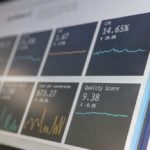The new challenges of retail
The retail environment is changing, calling into question established models: speed of execution, constant market adaptability, near-real-time information, restricted access to urban centers, supply disruptions, omnichannel, CSR…).
In response, supply chains are adapting their models. This is how warehouses are transformed: multiple formats, automation, robotization, juxtaposition of processes, permanent adaptations, WMS migration, etc. In addition, the role of sales outlets is evolving towards two opposing models, depending on the environment: a model “cleansed” of logistics activities or, on the contrary, a model integrating logistics activities but “industrialized”.
Logistics master plans are being overhauled, both by revising the role of warehouses and points of sale, and by integrating new flows prompted by environmental initiatives, in particular the rise of reverse logistics and short distribution channels.
Supply chain organizations are evolving both to meet the need for greater market integration and to manage new flows (omnichannel, recovery, recycling).
Operational practices are subject to an ongoing improvement process, following the example of “continuous progress”, well known in industry. Here, the aim is not only to improve performance, but also to secure flows.
Retail’s transformation relies on tools that enable it to capitalize on a massive amount of data to make the right decisions and manage its flows in near-real time.
These are all subjects that require a detailed knowledge of practices and issues, in order to make the right transformation choices.






